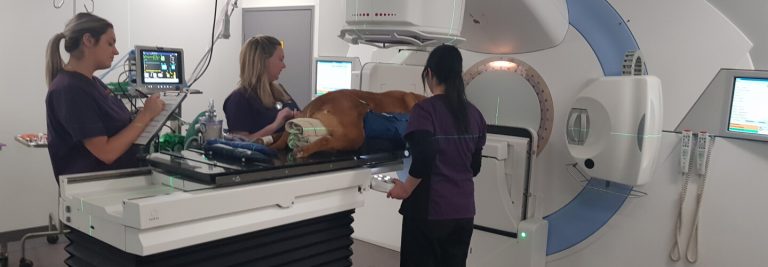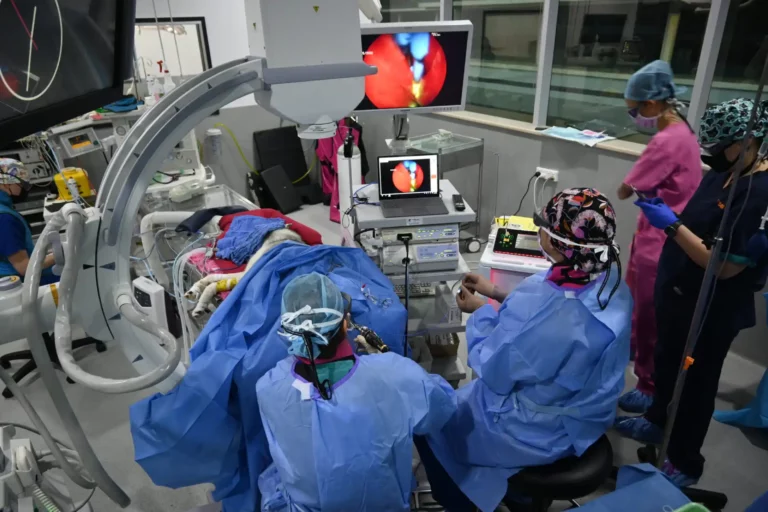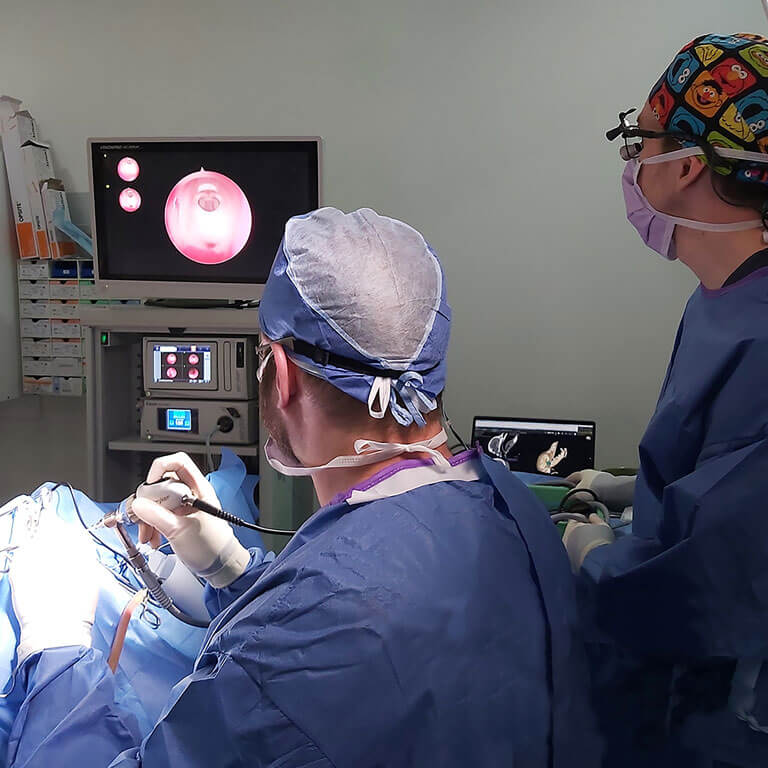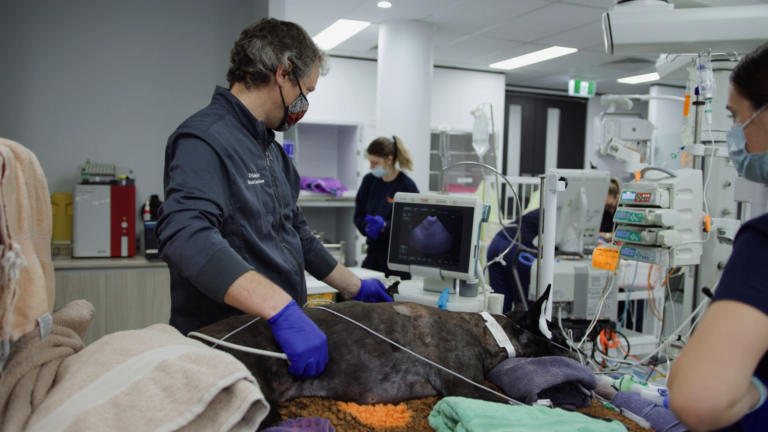By Dr Spela Bavcar (Oncology Specialist)
What is chemotherapy for dogs?
Chemotherapy involves giving one or more drugs to treat cancer. There are many different chemotherapy drugs that can be used to treat different cancers in dogs.
When is chemotherapy used in dogs?
Chemotherapy may be used as the sole treatment for certain cancers (such as lymphoma) or may be used in combination with other treatments, such as surgery and radiation therapy. In some cases, chemotherapy can be used to shrink large tumours prior to surgery, or to help eradicate certain types of microscopic cancer cells that cannot be completely removed by surgery. For cancers that have a high risk of spreading, chemotherapy can be used after surgery to help prevent the appearance of cancer in other parts of the body.
How does chemotherapy for dogs work?
Most cells in the body undergo cell division, as a way to make and replace cells. Chemotherapy drugs usually attack cells in the process of cell division. However, all rapidly dividing cells (including normal ones) are potentially affected by chemotherapy.
What does dog chemotherapy involve?
How a chemotherapeutic drug is administrated, how often it is given and how many treatments are given varies from case to case. The type of cancer, the extent of disease, and general health of the animal will be assessed by the Oncologist (cancer specialist) to formulate a treatment protocol.
Some drugs are oral medications that are given in the hospital or administered by owners at home. Others are injections that require an outpatient appointment. The treatments are typically repeated weekly to every third week. Blood tests may be needed to monitor the effects of chemotherapy during the weeks between drug treatments.
Dog chemotherapy side effects
Compared to people receiving the chemotherapy, pets experience fewer and less severe side effects because lower drug doses are generally used. Side effects from chemotherapy are mostly from healthy cells being affected by chemotherapy drugs. Fortunately, these tissues will repair themselves, after the chemotherapy drugs have been excreted.
The normal tissues that are most sensitive to chemotherapy are the ones with rapidly dividing cells – the digestive tract, the bone marrow (which makes the new blood cells), and hair follicles. For this reason, typical side effects include vomiting and diarrhoea. Although some loss of fur can occur, unlike in human patients, complete balding is very rare. In most cases, side effects are mild and usually resolve on their own.
There are many different types of chemotherapy agents and each has a different likelihood of causing side effects. SASH Oncologists have the knowledge and expertise about the effects and side effects of the full suite of chemotherapy drugs. If a pet is treated with drugs known to cause certain side effects, additional medications can be prescribed to help prevent these complications, such as anti-nausea medications.
Dog chemotherapy outcomes
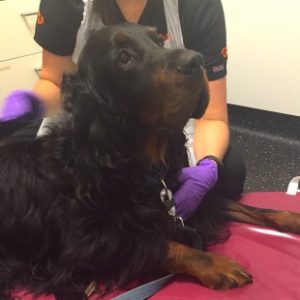
As much as we do strive to cure cancer, this is sometimes not possible. Our goal is therefore to improve a pet’s quality of life. To this end, chemotherapy can be used to minimise the discomfort caused by a tumour, or to stop or slow the progression of the disease.
Our compassionate Oncologist are experts in cancer treatment and understand the challenges associated with these conditions. They will provide information on average life expectancy with and without treatments and encourage owners to discuss their concerns when making this decision.
If you are concerned about your dog, be sure to visit your local veterinarian. If cancer is confirmed, ask your veterinarian for a referral to see a SASH Oncologist.
At SASH, chemotherapy is only one of many treatment options. Our Animal Cancer Centre is a one of a kind in Australia, able to provide comprehensive treatment options including medical, surgical, and radiation oncology all under one roof. The collaborative approach from our team of Oncologists will help provide the best possible outcome for your dog. Click the button below to book an appointment.
Call us to book a consult by clicking the contact button below.
